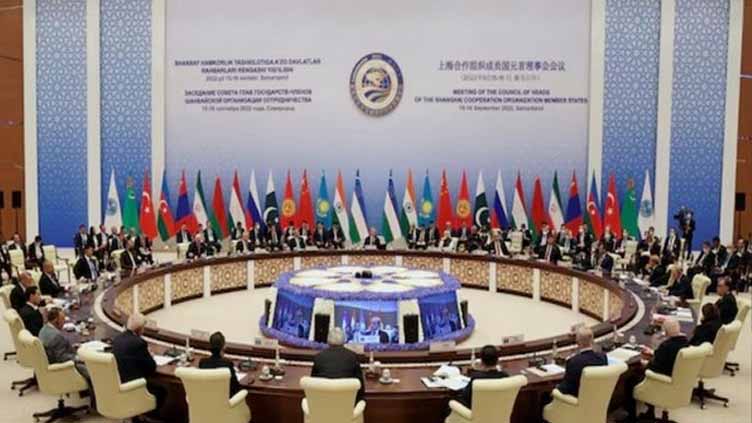What you need to know about SCO

Pakistan
Organisation was formerly known as ‘Shanghai-Five’ which was formed in 1996
SCO was formed in Shanghai (China) on June 15, 2001
Pakistan and India joined SCO on June 9, 2017
Maintenance of peace, and security and stability in region are its key roles
By Mudassar Ali Iqbal
Pakistan hosts 23rd Shanghai Cooperation Organisation’s Heads of Governments summit.
It’s got an opportunity as chairman of the Council of the Heads of Governments (CHG-SCO) - the second highest decision-making forum in the SCO – to host the event.
WHAT IS SCO?
The Shanghai Cooperation Organisation, which is popularly referred to as SCO, is a permanent regional and international organisation formed in Shanghai (China) on June 15, 2001.
The organisation was formed by Kazakhstan, China, Kyrgyzstan, Russia, Tajikistan and Uzbekistan.
The organisation was formerly known as ‘Shanghai-Five’ which was formed in 1996. It was renamed SCO in 2001 when Uzbekistan joined it.
With the passage of time more countries joined the SCO which has increased its magnitude and range of influence.
Pakistan and India joined the SCO on June 9, 2017. In 2023, Iran joined the SCO and in 2024, Belarus from Eurasia joined the organisation which expanded the magnitude of SCO from the Middle East on one side to the Eurasian land on the other.
Other than member states are two observer states - Mongolia and Afghanistan. It covers about 80pc of Eurasian land mass.
It makes SCO the largest regional (international) organisation by area and population which has 23pc of world GDP and 42pc of world population.
The United States also showed willingness to join the SCO as observer state but it was never granted the approval as the organisation is determined to be free of ‘Western’ influence.
PURPOSE OF SCO
The goals of the SCO according to its charter is to strengthen mutual trust, friendship and good-neighbourliness between the member states. It also encourages effective cooperation between the member states in spheres of politics, trade, economy, science and technology.
Culture, education, energy, transport, tourism, and environment protection are also major points of concerns for the organisation.
It also works on maintenance of peace, and security and stability in the region.
STRUCTURE OF SCO
The SCO has a supreme decision-making body the Council of Heads of State (CHS) of member states. The CHS is supported by the Council of Heads of Government (CHG) - the second highest decision-making body within SCO, which is currently being chaired by Pakistan.
There are two standing bodies of SCO - the Secretariat in Beijing and the Executive Committee of the Regional Anti-Terrorist Structure (RATS) in Tashkent.
With four atomic powers in a single alliance, the SCO has many successes to its credit to combat terrorism and extremism in the region.
SIGNIFICANCE FOR PAKISTAN
As a host of the SCO Heads of Government conference, there are opportunities for Pakistan.
As chairman of the CHG and host of SCO conference, the diplomatic profile of Islamabad will improve. It will add to the prestige of Pakistan.
Pakistan can also play a key role in the regional stability and security by developing good relations with its neighbours including Iran and India.
Indian External Affairs Minister Jaishankar will attend the SCO conference in Islamabad. It will be the first visit of any Indian diplomat in the last decade.
This event can be an icebreaker between the arch-rivals. Having better relations with the neighbours means regional stability and security will be enhanced and trading opportunities will open for Pakistan.
The trust of international investors will also be restored as successful hosting of SCO event will be a proof of a safe and secure environment in Pakistan. Hence, it will open the doorways of foreign direct investment (FDI) in Pakistan.


